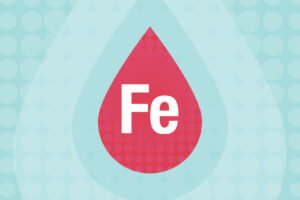Let’s face it—we are all busy and most of us don’t have time to carefully evaluate the packaging of everything we eat. Every few years, there are new health food trends that everyone jumps on, but some of these trends can seriously derail weight management efforts. Many of my clients falsely believe these trendy foods will make them healthier and thinner, when in fact, they may be doing the opposite:
Protein drinks, bars and cookies = excessive calories
I recently met with a 40-year-old working mother of two from Monmouth County who wanted to lose weight while also training for a long distance run. She was working out like crazy, but not seeing positive results on the scale. In fact, she had been gaining about three pounds per month. During our first session, we discussed her food intake and preparation for the upcoming competition.
“I’m drinking two to three protein drinks a day and eating a high-protein bar or high-protein cookie before and after my work-outs,” she explained. Once I calculated the calorie counts in the protein drinks and bars, we determined she was adding more than 1,000 calories daily — just in protein supplements — in addition to regular meals and snacks. Protein drinks can pack 150 to 250 calories per serving and as much as 10 to 20 grams of sugar.
I explained to her that most athletes can get all the protein they need just by eating protein-rich foods as part of a balanced, heart-healthy meal plan. In fact, there is no scientific evidence proving that protein supplements enhance muscle strength or size. Once my client scaled back on her intake of these supplements, her weight loss started almost immediately.
Granola is not really a health food
Granola bar packaging makes this manufactured product sound healthy, but these carb-laden snacks can also derive a third or more of their calories from sugar, cleverly disguised as “molasses, brown sugar, brown rice syrup or honey.”
If you eat granola bars as an occasional snack, be sure to compare labels for calorie, sugar, fiber and saturated fat content. Some varieties aren’t particularly filling and can leave you wanting more. I recommend that my weight management clients eat these bars in moderation only after carefully comparing the calorie and nutritional content of different brands.
Smoothies are packed with sugar, often leaving you hungry
Bottled fruit and vegetable-infused drinks are incredibly popular with kids and adults on the go. But sometimes sugar can account for more than half the calories per serving. Even when a portion of the sugar comes from fruit, people trying to manage their blood sugars should know that one 15-ounce smoothie bottle can pack an astounding 40 grams of sugar! Additionally, research has shown that beverages are not as satisfying as solid food. This means, a few hours after consuming a 275-calorie drink, you may be in the kitchen looking for a snack.
Bottom Line: Become a food label sleuth when food shopping. The nutrition information displayed on a food label — including calories — is based on the manufacturer’s definition of one serving, which may not be a single portion size by your standards. Sometimes there can even be more than one serving in a (presumed) single-size bottle, can or package.
If you’re reading food labels and are still having challenges navigating the supermarket aisles, a session with a registered dietitian can help point you in the right direction.
CentraState Medical Center offers a powerful new way to Live Life WellSM and improve your health and well being – body, mind and spirit. Whether you want to eat healthier, exercise more effectively, stress less, or learn how to prevent or manage a chronic condition, CentraState health & wellness experts will give you the tools you need to feel great and achieve lasting results. Learn more by visiting livelifewellnj.com or call 732-308-0570.
 Caryn Alter, MS, RD, is a registered dietitian and nutrition instructor at the Star and Barry Tobias Health Awareness Center at CentraState Medical Center in Freehold.
Caryn Alter, MS, RD, is a registered dietitian and nutrition instructor at the Star and Barry Tobias Health Awareness Center at CentraState Medical Center in Freehold.





